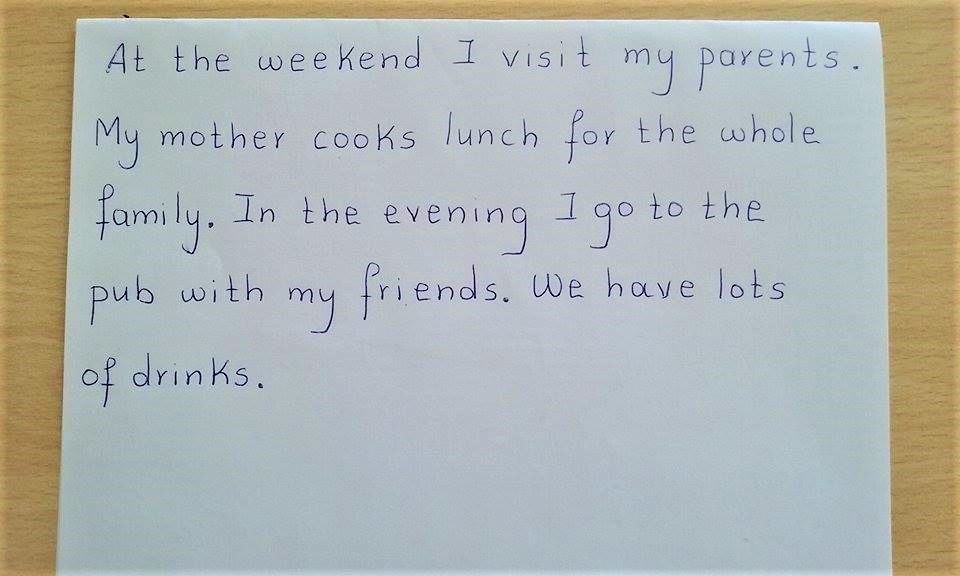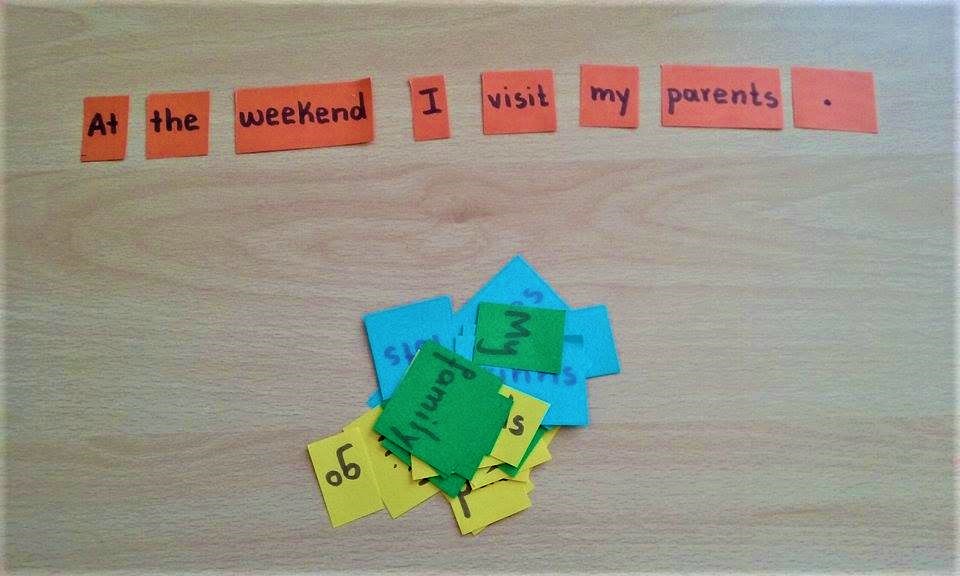Aim: practise reading skills Level: A1-A2 Age: any
Stages
- Choose a topic that interests the student. Bring some flashcards related to it and use them as a stimulus to initiate conversation. In this case the topic is about weekend routines and the flashcards show free time activities. Use the flashcards to establish the meaning of the words and elicit what the student does at the weekend.
- After you have looked at the flashcards and discussed about the student’s weekend routine start writing down some of the things the student has said. Reformulate what the student has said into full sentences and read aloud every single word as you write it down. Meanwhile, you may wish to expand what the student has said by asking questions such as, ‘When do you see your friends?’, ‘How often do you eat out?’ ‘Who do you go with?’ in order to form longer sentences or upgrade the student’s vocabulary. After writing a sentence bring your finger down on each word and read it to the student. Ask the student to do the same using his/her finger. This is very important as it helps the student make the connection between the written and the spoken form of the words which might differ completely, e.g. night /naɪt/ Do the same for all the following sentences. The length of the text will depend on the student and your aim. If your aim is to practise reading skills, it can be short. If your aim is to enrich the student’s vocabulary, it can be longer.

- Once you have the text that was generated by your student, you can start working on it by moving from the more general to the more specific. Write each sentence on a different coloured card and shuffle them. Ask the student to read the sentences and reorder them to create the text.

- Cut the strips of sentences into words and ask the student to recreate the sentences and the whole text. Take the opportunity to point the use of capital letters at the beginning of a sentence and the use of full stops at the end of a sentence. After the student has recreated the text ask him/her to read it to you.

- Next time you see your student ask him/her to read the text again. Follow the same procedure and write another text to help your student develop some word-attack skills and build his/her confidence.
Learn more about LEA here:http://eltea.org/blog/language-experience-approach-lea-bringing-real-life-experiences-into-the-classroom
